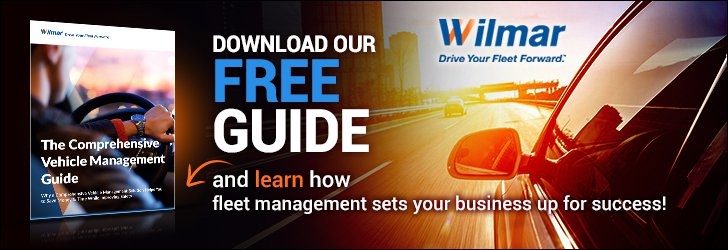
The more efficiently you can manage your fleet, the more you'll keep the costs down and profits up for your company. But that's not always an easy goal to meet. Part of efficiently managing a fleet is improving your fleet management system.
Whether your fleet management solution consists of paper and pen or you have a state-of-the-art set-up, there are things you can do to improve your system and save money on your fleet costs.
Here are three ways you can improve your fleet management system and see a decrease in your costs.
How to Improve Your Fleet Management Solution
Get data on everything you can, then use it.
One of the best things you can do for your fleet is to look at the data. There is a lot of data that comes from fleet management, and all of it is important. The more information you have, the more you can analyze the data.
That will help you determine where there are issues and opportunities for improvement. If you aren't tracking it already, start gathering data on topics such as:
- Vehicle use. Are all your vehicles in use all the time? Or are there a few vans and cars are always parked at the back? When you track usage numbers, you'll be able to determine which vehicles are worth their cost. You'll also be able to see if there are any extra vehicles you can get rid of to save the company money.
- Driver safety. How safe are your drivers operating their fleet vehicles? There are devices you can easily install on the fleet vehicles to feed you back data on driving behavior. This information can help you coach the drivers, encouraging them to be safer when responding to calls or making deliveries. That keeps your insurance and repair costs down.
- Fuel efficiency. You need to know how much fuel your vehicles are using and how those numbers vary over time. An increase in fuel could be a sign that a driver isn't operating the vehicle efficiently. TruckingInfo.com cautions that this could be a sign of speeding or excessive idling, in which case it's an opportunity for driver coaching. It's also a sign that there could be a mechanical issue with the vehicle that needs addressed as soon as possible.
The more information you have on your fleet, the better. Most fleet management system software will track these numbers for you. However, you'll need to educate yourself on how to use the numbers to your advantage.
An experienced fleet manager may be able to help you understand the data and determine how to use it best.
Make reporting as easy as possible for your drivers.
Reporting is a big deal when it comes to managing your fleet. Depending on the devices and software that you use for your fleet management, a lot of the information that you need will come to you automatically.
But you'll still depend on your drivers to provide certain information, and that's important. Some of the information you may get from your drivers includes:
- How many miles they drove that day. You might be tracking this digitally, but it's a good idea to have the drivers put in their own records as well. Some of the miles they covered could have been for personal use (running an errand, grabbing lunch, etc.).
- When they had maintenance done. Some fleet managers leave it up to their drivers to bring their vehicles in for service and maintenance. If you do, make sure they report back to you when, where, and what they had done. That way you can update your records.
- Any accidents they had. Accidents, even very minor ones with no injuries, need reporting back to the fleet manager immediately. That's because even if there doesn't appear to be any damage, the vehicle will need checking over by a professional to ensure it's safe. You'll need to report the damage to your insurance company, too. Business Fleet offers tips for preparing your drivers on how to respond at the scene of an accident.
So there is a lot of information that you need to get from your drivers. And the key to making sure you get it is to make it as simple as possible. The more complicated paperwork and reporting are the more likely drivers are going to try to avoid doing it. It's also wasted manpower for your company.
So make reporting quick, easy, and simple. Being able to email reports is essential, and online reporting is even better.
Track maintenance and inspection schedules carefully.
Tracking maintenance and inspection schedules may be the single most important thing that you do as a fleet manager. That's because there are a number of benefits, including:
- Keeping repair costs down. Regular maintenance can help avoid major repair issues on your fleet vehicles. Your maintenance team will be able to identify and replace worn out parts before they cause a breakdown.
- Keeping downtime to a minimum. Just because a vehicle is out of commission doesn't mean you don't have to pay your workers. Vehicle downtime can lead to other costs, too, including losing the business of a customer who has to go to another vendor.
Make sure you know what the vehicles really need, though. Fleet Financials cautions fleet managers not to strictly adhere to the "every 3,000-mile" rule. They say that's best for vehicles under heavy usage, so may not be right for all fleet vehicles.
If you do one thing to improve your fleet management system, good maintenance schedules is the one you want to choose. Carefully tracking fleet needs and ensuring maintenance is on time is a money and time saver you can't neglect.
Struggling With Your Business Fleet Management?
There is a lot that goes into managing a fleet. Even with the best technology and the more intricate systems, it can be a hassle. Businesses often need to turn their fleet management system over to an outside source.
That way they know the job is being done right and they can focus their internal resources on business growth.
Are you struggling with your fleet management needs? Get in touch with the Wilmar team. We can handle all your fleet management needs, from sourcing new vehicles to reporting and maintenance schedules.
Call us today to discuss your business fleet needs and to get started with our fleet management services.







